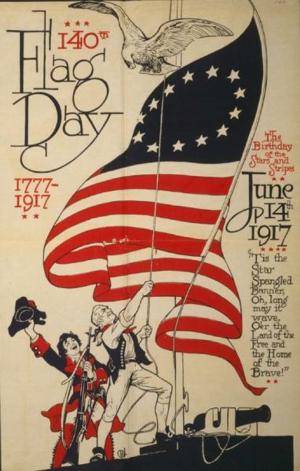| Author: | Cyril M. Kornbluth | ISBN: | 9781465504265 |
| Publisher: | Library of Alexandria | Publication: | March 8, 2015 |
| Imprint: | Language: | English |
| Author: | Cyril M. Kornbluth |
| ISBN: | 9781465504265 |
| Publisher: | Library of Alexandria |
| Publication: | March 8, 2015 |
| Imprint: | |
| Language: | English |
THE EARLY DAYS In a general way, I cannot remember that our life as boys differed in any essential from that of Other boys. My brother went to the Episcopal Academy and his weekly report never failed to fill the whole house with an impenetrable gloom and ever-increasing fears as to the possibilities of his future. At school and at college Richard was, to say the least, an indifferent student. And what made this undeniable fact so annoying, particularly to his teachers, was that morally he stood so very high. To "crib," to lie, or in any way to cheat or to do any unworthy act was, I believe, quite beyond his understanding. Therefore, while his constant lack of interest in his studies goaded his teachers to despair, when it came to a question of stamping out wrongdoing on the part of the student body he was invariably found aligned on the side of the faculty. Not that Richard in any way resembled a prig or was even, so far as I know, ever so considered by the most reprehensible of his fellow students. He was altogether too red-blooded for that, and I believe the students whom he antagonized rather admired his chivalric point of honor even if they failed to imitate it. As a schoolboy he was aggressive, radical, outspoken, fearless, usually of the opposition and, indeed, often the sole member of his own party. Among the students at the several schools he attended he had but few intimate friends; but of the various little groups of which he happened to be a member his aggressiveness and his imagination usually made him the leader. As far back as I can remember, Richard was always starting something—usually a new club or a violent reform movement. And in school or college, as in all the Other walks of life, the reformer must, of necessity, lead a somewhat tempestuous, if happy, existence. The following letter, written to his father when Richard was a student at Swarthmore, and about fifteen, will give an idea of his conception of the ethics in the case: SWARTHMORE—1880. DEAR PAPA: I am quite on the Potomac. I with all the boys at our table were called up, there is seven of us, before Prex. for stealing sugar-bowls and things off the table. All the youths said, "O President, I didn't do it." When it came my turn I merely smiled gravely, and he passed on to the last. Then he said, "The only boy that doesn't deny it is Davis. Davis, you are excused. I wish to talk to the rest of them." That all goes to show he can be a gentleman if he would only try. I am a natural born philosopher so I thought this idea is too idiotic for me to converse about so I recommend silence and I also argued that to deny you must necessarily be accused and to be accused of stealing would of course cause me to bid Prex. good-by, so the only way was, taking these two considerations with each Other, to deny nothing but let the good-natured old duffer see how silly it was by retaining a placid silence and so crushing his base but thoughtless behavior and machinations. DICK
THE EARLY DAYS In a general way, I cannot remember that our life as boys differed in any essential from that of Other boys. My brother went to the Episcopal Academy and his weekly report never failed to fill the whole house with an impenetrable gloom and ever-increasing fears as to the possibilities of his future. At school and at college Richard was, to say the least, an indifferent student. And what made this undeniable fact so annoying, particularly to his teachers, was that morally he stood so very high. To "crib," to lie, or in any way to cheat or to do any unworthy act was, I believe, quite beyond his understanding. Therefore, while his constant lack of interest in his studies goaded his teachers to despair, when it came to a question of stamping out wrongdoing on the part of the student body he was invariably found aligned on the side of the faculty. Not that Richard in any way resembled a prig or was even, so far as I know, ever so considered by the most reprehensible of his fellow students. He was altogether too red-blooded for that, and I believe the students whom he antagonized rather admired his chivalric point of honor even if they failed to imitate it. As a schoolboy he was aggressive, radical, outspoken, fearless, usually of the opposition and, indeed, often the sole member of his own party. Among the students at the several schools he attended he had but few intimate friends; but of the various little groups of which he happened to be a member his aggressiveness and his imagination usually made him the leader. As far back as I can remember, Richard was always starting something—usually a new club or a violent reform movement. And in school or college, as in all the Other walks of life, the reformer must, of necessity, lead a somewhat tempestuous, if happy, existence. The following letter, written to his father when Richard was a student at Swarthmore, and about fifteen, will give an idea of his conception of the ethics in the case: SWARTHMORE—1880. DEAR PAPA: I am quite on the Potomac. I with all the boys at our table were called up, there is seven of us, before Prex. for stealing sugar-bowls and things off the table. All the youths said, "O President, I didn't do it." When it came my turn I merely smiled gravely, and he passed on to the last. Then he said, "The only boy that doesn't deny it is Davis. Davis, you are excused. I wish to talk to the rest of them." That all goes to show he can be a gentleman if he would only try. I am a natural born philosopher so I thought this idea is too idiotic for me to converse about so I recommend silence and I also argued that to deny you must necessarily be accused and to be accused of stealing would of course cause me to bid Prex. good-by, so the only way was, taking these two considerations with each Other, to deny nothing but let the good-natured old duffer see how silly it was by retaining a placid silence and so crushing his base but thoughtless behavior and machinations. DICK















